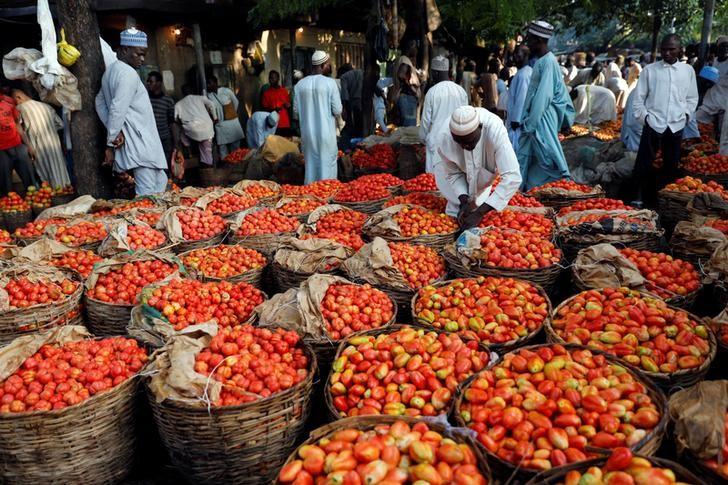Latest data by Nigeria’s National Bureau of Statistics (NBS), on Monday said the country’s headline inflation rate (which measures the average increase in the prices of goods and services) continued northward for the ninth consecutive month at 20.77% at the end of September, compared to 20.55% in August 2022.
The growth, the highest level in over 17 years, was 4.14% higher than the 16.63% reported in the corresponding period of 2021, a situation the bureau said is likely the outcome of “disruption in the supply of food products, increase in import cost due to the persistent currency depreciation, general increase in the cost of production.”
Specifically, continues to be driven primarily by the high exchange rate pressure, as well as the cost of premium motor spirit and diesel, resulting in the exorbitant transportation cost and, to a large extent rise in imported food inflation, while bad road infrastructure and insecurity in the country’s largely agrarian have kept the cost of farm produce out of the reach of poor folks.
Inflation in urban cities year-on-year, stood at 21.25% in the month of September 2022, up by 4.06% when compared to the 17.19% recorded in September 2021, following which the 12-month average for the urban inflation rate was 17.94%, 0.53% higher compared to the 17.41% reported in September 2021.
Rural inflation rate in September 2022 was 20.32% YoY, 4.24% higher compared to 16.08% recorded in September 2021
Food inflation during the period jumped to 23.34% YoY, 3.77% higher than the 19.57% recorded in September 2021, pushed by increases in prices of bread and cereals, owing to the ongoing eighth-month war between Russia and Ukraine. Others are potatoes, yam, and other tuber impacted by the high cost of transportation and the raging insecurity in the north of Nigeria; as well as oil, and fat.
The average annual rate of food inflation for the twelve-month period ending September 2022, over the previous 12-month average was 19.36%, a decline of 1.35% from the 20.71% reported last year.
Food sub-index stood at 23.34% YoY in the period under review, from 19.57% in the same month of last year; while core sub-index (otherwise referred to as All items less farm produce) recorded the most significant jump by 3.86% from 13.74% to 17.6%.
“The highest increases were recorded in prices of Gas, Liquid fuel, Passenger transport by air, passenger travel by road, and solid fuel,” the report added.
On state-by-state basis, inflation was at its peak for the period in three states mostly affected by the recent flooding in the country, led by Kogi which recorded 23.82%; Rivers, 23.49%; and Benue, 22.78%; while Abuja recorded the slowest growth at 17.87%; followed by Borno, 18.12%; and neighbouring Adamawa, 18.42%.
Food inflation was highest YoY in Kwara at 33.09%; Kogi, 28.46%; and Ebonyi, 27.41%; while it was slowest in Kaduna, 18.84%; Jigawa, 19.20%; and Sokoto, 19.44%.








